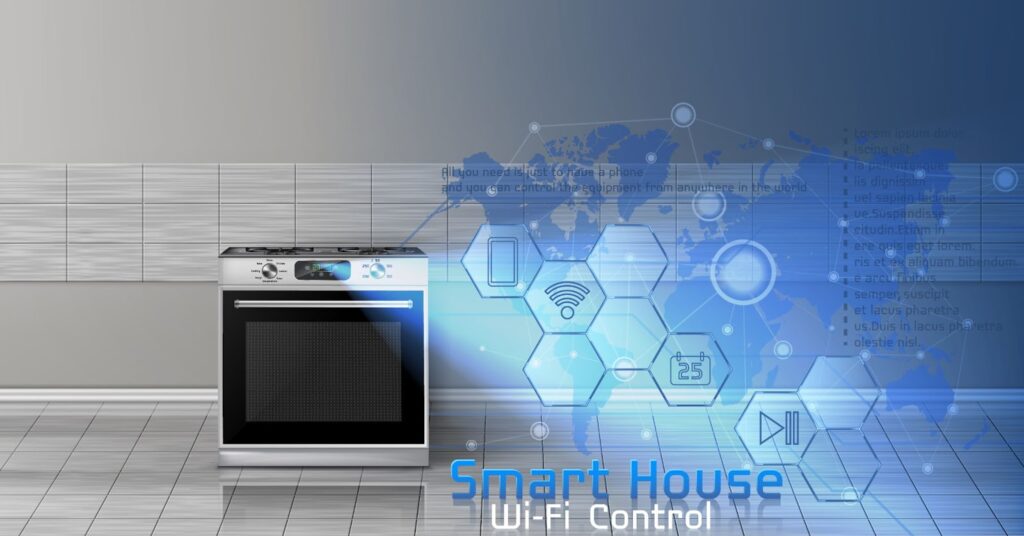What to Know about Energy-Efficient Oven
Homeowners might be on a mission to make their home more energy efficient. One of the easiest ways to increase the energy efficiency of the home is to upgrade to energy-efficient appliances when a new model is necessary. Homeowners that are ‘foodies’ and love to cook might worry that their current stove is cooking their budget.
Unfortunately, homeowners looking for an energy-efficient upgrade might need to turn up the heat on their research.
Are there ENERGY STAR Ovens?
The energy-star label isn’t available for microwaves, ranges and ovens. Commercial ovens are the only major cooking appliances that feature the ENERGY STAR label. While this lack of a label doesn’t mean that homeowners can’t find more energy-efficient options, it does mean that finding these models might require more research.
However, Constellation recommends convection ovens to help homeowners conserve energy. Constellation explains that convection ovens use about 20 percent less energy each month compared to a standard option.
In addition, Constellation also explains that gas is more energy efficient than electric (for ovens). In addition, buyers also should opt for self-cleaning ovens, which Constellation explains offer better insulation.

Homeowners also can Conserve Energy
While energy-efficient appliances use less energy for the same job as the standard appliance, homeowners also can take energy use into their own hands. Energy conservation means decreasing energy use mindfully and being more cognizant of habits that could waste energy.
The oven can produce heat in the home. During the winter, this extra heat can take some of the heat off of the furnace. However, using the oven during hot summer days can put more pressure on the air conditioner.
Homeowners might opt to use a microwave in place of the oven during hot summer days. Microwave ovens won’t add the extra heat to surrounding areas.
Electric vs. Gas
Gas ovens and ranges are typically noted as being more efficient than electric. However, homeowners might focus on the cost of these two energy sources. Sometimes gas is more expensive than electric.
During times when gas costs are high, homeowners with a gas range and oven might opt to use a larger toaster oven or a microwave.

Use the Internet of Things
Modern ovens can integrate into the Internet of Things. For example, some ovens might link to an app and be controlled remotely. A virtual assistant might be used to automatically preheat the oven or turn off the oven.
Many of today’s appliances are smart and can be powered by mobile devices. For homeowners that want this type of control, research ovens that are compatible with apps and mobile devices. Bosch ovens don’t just let users control the oven via a device, but the oven’s app lets owners access lots of recipes, too.
Smart ovens or those that are compatible with the Internet of Things might be a more expensive investment.
Is the Oven Heating Up the Budget?
If homeowners use the oven often, they might wonder if their rising utility costs are due to their oven or stove. While these appliances use their share of energy, the home’s dominant energy drain is the HVAC. Heating and cooling the home accounts for more than 40 percent of the home’s energy use.
Homeowners that find that their electricity or gas costs are soaring might look at their heating and cooling use. During the summer, a heat wave could put more pressure on the air conditioner. Bitter cold winters could inspire homeowners to turn up the heat.
One simple way to keep heating and cooling costs in check is to adjust the thermostat. Set the thermostat to 78 degrees Fahrenheit during the summer. In the winter, adjust the thermostat down to 68 degrees Fahrenheit. These adjustments could help the HVAC turn on less and waste less energy.
Another meaningful change that can help homeowners save money is to watch hot water use. Yes, a hot shower is relaxing. However, using hot water requires the water heater (which also zaps energy). Be mindful of hot water waste; this appliance accounts for 14 percent of the monthly energy use of the home.
The third biggest energy drain of the home is the washer and dryer. Homeowners should wash only full loads of laundry; wash on cool when it’s safe to do so. In addition, homeowners should be mindful of dryer cycles. Remove clothes from the dryer promptly; don’t double dry loads.
To ensure that dryers run efficiently, homeowners should clean the lint trap after every dryer cycle. They also should ensure that they clean the dryer vent yearly (at least).
While homeowners can’t find ovens with the ENERGY STAR label, they might opt for convection ovens and self-cleaning ovens (which might be more efficient). In addition, they also need to be mindful of using ovens during hot summer days. Homeowners also can address bigger energy drains in the home to help decrease energy drains and conserve energy.


